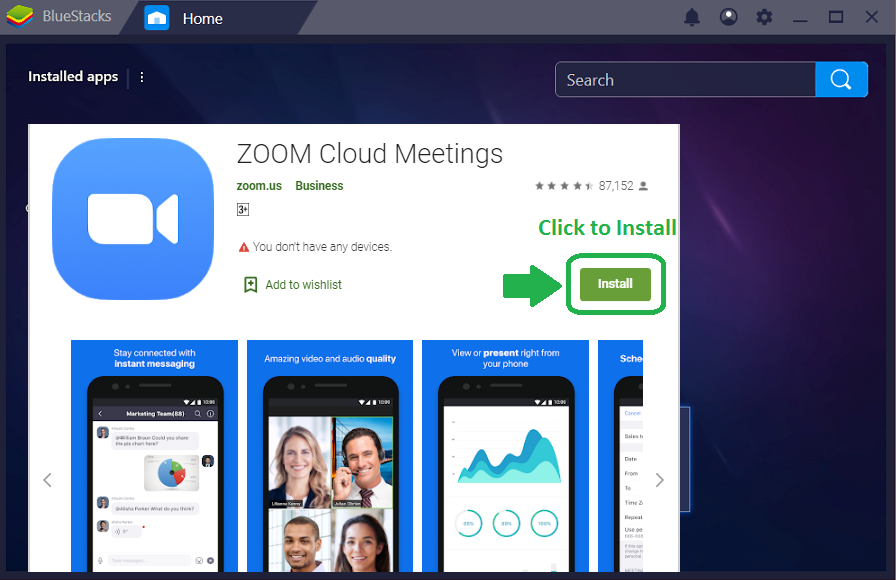Zoom on Linux: Your Guide to Seamless Video Conferencing

So, you're a Linux user, huh? A discerning individual, I see. You've chosen the path less traveled, the road of open-source enlightenment. But now you need to, you know, actually *talk* to people. And those people are probably using Zoom. Don't worry, the Zoom meeting application for your Linux PC is here to bridge the gap between your penguin-powered paradise and the rest of the world.
Getting Zoom up and running on Linux might seem like a daunting task, like trying to assemble IKEA furniture blindfolded. But fear not, it's surprisingly straightforward. This comprehensive guide will walk you through everything you need to know, from downloading the Zoom client for Linux to mastering its many features. Consider this your cheat sheet for conquering the world of video conferencing, one Linux command at a time.
Zoom, the ubiquitous video conferencing platform, has become a staple in our digitally connected world. From virtual boardrooms to online classrooms, Zoom has become the go-to solution for communication. But what about those of us who prefer the flexibility and power of Linux? Fortunately, Zoom offers a dedicated Linux client, ensuring that we penguins aren't left out in the cold.
Zoom was founded in 2011 by Eric Yuan, a former Cisco Webex engineer. Initially focused on enterprise clients, Zoom quickly gained popularity due to its ease of use and reliable performance. The platform truly exploded in usage during the global pandemic, becoming an essential tool for remote work, education, and socializing. Its importance lies in its ability to connect individuals and groups across geographical boundaries, facilitating collaboration and communication in a virtual space.
However, the rapid rise of Zoom hasn't been without its controversies. Privacy and security concerns have been raised, leading to updates and improvements in the platform's security measures. Concerns about "Zoombombing" and data breaches prompted the company to implement enhanced security features, such as waiting rooms and password protection.
Zoom for Linux offers several benefits. Firstly, it allows for seamless integration with your existing Linux workflow. Secondly, the Linux client benefits from the same core features as other platforms, including screen sharing, recording, and virtual backgrounds. Thirdly, the Zoom client for Linux is regularly updated with security patches and new features, ensuring a safe and efficient user experience.
To install Zoom on Linux, you can typically download a .deb or .rpm package from the Zoom website. Use your distribution's package manager to install the downloaded file. After installation, launch Zoom and sign in with your account. It's that simple!
Advantages and Disadvantages of Zoom on Linux
| Advantages | Disadvantages |
|---|---|
| Open-source compatibility | Potential integration issues with specific Linux distributions |
| Familiar Zoom interface | Occasional performance discrepancies compared to Windows/Mac |
| Regular security updates | Limited support for certain hardware configurations |
Best Practices:
1. Use a wired internet connection for better stability.
2. Close unnecessary applications to free up system resources.
3. Update your Linux distribution and Zoom client regularly.
4. Use a headset for better audio quality.
5. Test your audio and video before joining important meetings.FAQ:
1. Can I use Zoom on any Linux distribution? Generally, yes, but compatibility may vary.
2. Is Zoom free on Linux? Yes, a free tier is available.
3. How do I update Zoom on Linux? Through your distribution's package manager or the Zoom app itself.
4. Can I share my screen on Zoom for Linux? Yes.
5. Can I record meetings on Zoom for Linux? Yes.
6. How do I troubleshoot audio/video issues? Check your system settings and Zoom's audio/video configuration.
7. Is Zoom secure on Linux? Zoom implements security measures across all platforms.
8. Where can I find more help with Zoom on Linux? Zoom's support website offers detailed documentation.Tips and Tricks: Use keyboard shortcuts to quickly mute/unmute, start/stop video, and share your screen. Customize your virtual background for a more personalized experience.
In conclusion, Zoom on Linux offers a robust and convenient way to connect with others, regardless of their operating system. While it might have some minor quirks compared to its Windows and Mac counterparts, the benefits of seamless integration with your Linux workflow and the consistent feature updates make it a valuable tool for anyone working or communicating in a digital environment. By understanding the installation process, features, and best practices, you can maximize your productivity and make the most of the Zoom meeting app for your Linux PC. Take advantage of this powerful tool and connect with the world, one video conference at a time. So go forth, brave Linux user, and conquer the digital landscape with the power of Zoom!
The fall of the malacca sultanate a pivotal moment in history
Unlocking communication the power of asl sign language clipart
The publics burning question is he in custody












